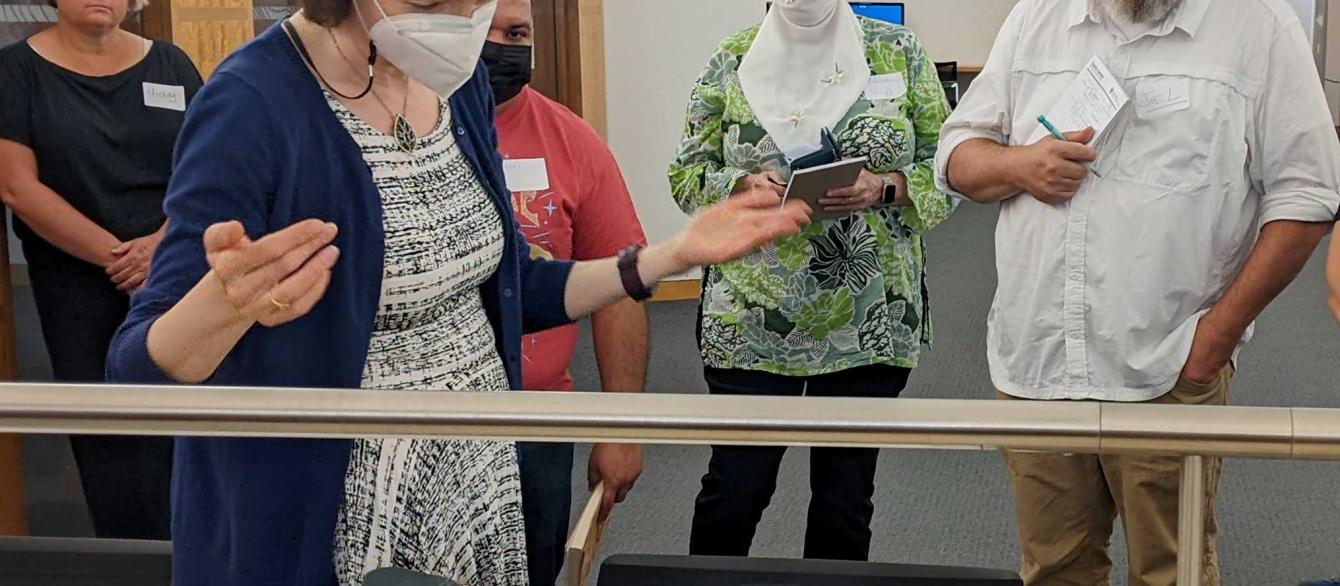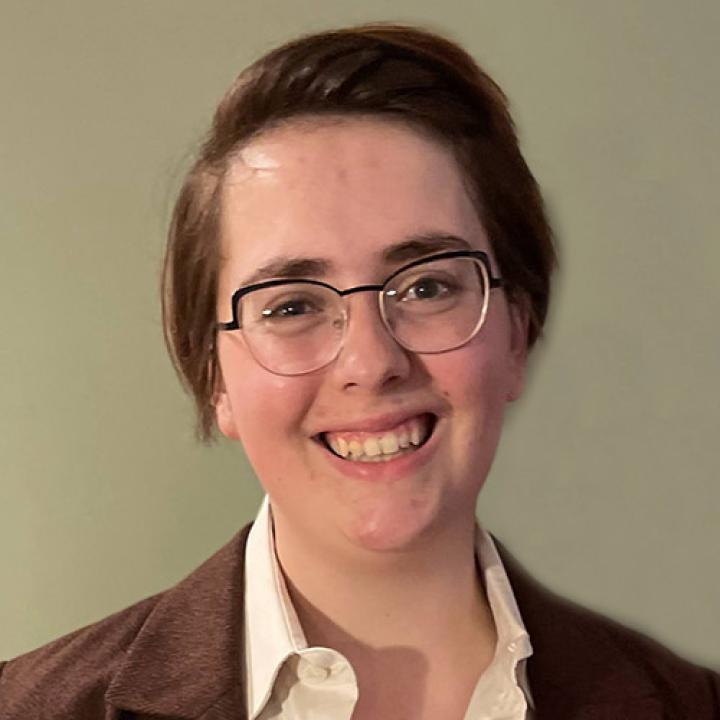Teachers from as far away as Arizona and Puerto Rico and as nearby as Cambridge gathered at Harvard on May 20 for the culmination of the Engaging Eurasia Teacher Fellowship. The daylong workshop brought together fellows who have spent the academic year learning about the culture of Russia and Eurasia. Davis Center staff were thrilled to welcome fellows to campus for the first time to hear from guest lecturers and learn from one other.
Over the past nine months, fellows have met monthly online to discuss Russian and Eurasian culture, with emphasis on literature, art, and music throughout the imperial, Soviet, and post-Soviet eras. The on-campus workshop emphasized the decolonization of Slavic studies.
Łukasz Wodzyński (University of Wisconsin–Madison) discussed the cultural impact of Poland’s Solidarity movement, using examples from contemporary film and literature. Olga Breininger, Ph.D. ’19, led a conversation about contemporary women’s narratives of the North Caucasus. A resident of Moscow, Breininger also discussed the current atmosphere in Russia. “Her individual account of life experiences during the conflict with Ukraine provided the personal side of the events that we read about in the newspaper,” said Paul Hoelscher, a teacher from St. Louis, Missouri.
The workshop provided me the time and space to discuss Russian and Eurasian culture with my fellows and helped me coalesce the major ideas I will be passing along to my students via new curriculum content.
Kathryn Black
Teacher, Hull, MA
In addition to these lectures, the fellows received a tour of the Fung Library and of the Davis Center’s collection of dissident art from the Soviet period. This opportunity to engage with primary sources supplemented the fellows’ yearlong experience working with art, literature, and other culture from the region.
Perhaps most importantly, the fellows had the chance to learn from one other, exchanging experiences and ideas about teaching. “My biggest takeaway from the workshop was the synthesis and cumulative thinking I was able to do with all the information we've been learning throughout the course of this fellowship,” said Kathryn Black, a teacher from Hull, MA. “The workshop provided me the time and space to discuss Russian and Eurasian culture with my fellows and helped me coalesce the major ideas I will be passing along to my students via new curriculum content.”
As this year’s fellowship draws to a close, preparations for next year’s program on everyday life in the Soviet Union are already underway. At the Davis Center, our outreach programming brings the knowledge of area experts to hard-working teachers from schools and community colleges across the country. We remain committed to deepening understanding of Russian and Eurasian studies in the classroom, and this recent workshop was just one example of that work.
The Engaging Eurasia Teacher Fellowship is a collaboration between the Davis Center for Russian and Eurasian Studies at Harvard University, the Center for Slavic and East European Studies at the Ohio State University, the Center for Russia and East European Studies at the University of Pittsburgh, and the Center for Russia, East Europe and Central Asia at the University of Wisconsin-Madison. The program, funded by a Title VI—National Resource Center grant, began in 2020 and has continued running throughout the pandemic. It is open to high school and community college teachers from across the United States.






